7 Remarkable Reasons You Should Choose Mobile Jaw Crusher for Your Business
As industries shift towards more efficient and versatile solutions, the adoption of equipment like the
Mobile Jaw Crusher has become increasingly significant. According to a report by
Mordor Intelligence, the global mobile crushers and screeners market is expected to reach
USD 4.95 billion by 2026, reflecting a compound annual growth rate
(CAGR) of 3.8% from 2021 to 2026. This growth is driven by the escalating demand
for recycled materials and the need for enhanced flexibility in mining and construction operations.
Mobile Jaw Crushers not only provide superior crushing capabilities but also guarantee
mobility, reducing the need for extensive transportation logistics. Furthermore, their ability to operate in diverse environments
enhances productivity, making them a smart investment for businesses aiming to stay
competitive in an evolving marketplace.
Advantages of Mobile Jaw Crushers in Modern Construction and Demolition Projects
In modern construction and demolition projects, mobile jaw crushers have proven to be invaluable assets. Their portability allows for on-site crushing, significantly reducing the need for transporting materials to and from a project site. This not only streamlines operations but also cuts down on transportation costs and emissions, aligning with sustainable construction practices. As companies in the Gulf Cooperation Council (GCC) region ramp up their projects, the demand for efficient mobile crushing solutions continues to rise.
Moreover, the versatility of mobile jaw crushers makes them a preferred choice for a variety of applications. They are capable of handling various materials, from concrete and asphalt to natural stones, making them suitable for demolition, recycling, and quarrying. With an increasing number of firms investing in advanced crushers, such as tracked models that combine power with maneuverability, construction teams can enhance productivity and achieve better results—even in challenging environments. This adaptability helps businesses stay competitive in a fast-evolving industry.
Key Performance Metrics: Efficiency and Productivity Gains with Mobile Jaw Crushers
Mobile jaw crushers have revolutionized the way businesses approach material processing, significantly enhancing efficiency and productivity. One of the key performance metrics that stands out is their ability to reduce equipment setup time. Traditional stationary crushers often require extensive installation and adjustment. In contrast, mobile jaw crushers can be quickly deployed to job sites, allowing for immediate operations and minimal downtime. This mobility not only speeds up project timelines but also reduces labor costs associated with moving and setting up equipment.
Furthermore, mobile jaw crushers excel in their processing capabilities. They can handle a variety of materials, from hard rock to recycled concrete, making them versatile tools for any operation. The integrated technology in these crushers often leads to improved crushing ratios and higher-quality output, which are crucial for meeting stringent industry demands. By optimizing the crushing process, businesses can maximize their operational efficiency, ensuring that they achieve more in less time while maintaining high standards of product quality.
Efficiency and Productivity Gains with Mobile Jaw Crushers
Cost Analysis: How Mobile Jaw Crushers Reduce Operational Expenses for Businesses
Mobile jaw crushers have revolutionized the way businesses approach crushing and processing materials on-site. One of the essential benefits they provide is a significant reduction in operational expenses. According to a report by Grand View Research, the global mobile crushers market is expected to grow at a CAGR of 5.2% from 2021 to 2028. This growth stems from the increasing demand for cost-effective solutions that mobile jaw crushers offer, as they eliminate the need for extensive transport logistics.
Operational costs are further reduced through fuel efficiency and enhanced productivity. A study by the Construction Industry Research and Information Association indicates that mobile jaw crushers can reduce fuel consumption by up to 30% compared to traditional fixed crushers. Additionally, the auxiliary equipment required for material handling is minimized, allowing companies to allocate resources more effectively.
These advantages create an impactful economic case for businesses looking to streamline their operations and enhance profitability while maintaining the required quality standards in their output.
Environmental Impact: Sustainable Practices with Mobile Jaw Crusher Technology
The adoption of mobile jaw crushers has been gaining momentum, particularly due to their potential for sustainability in various industries. As highlighted in recent market analysis, the mobile crushers and screeners market is projected to exceed USD 4.0 billion, driven by a growing preference for portable, efficient machines. These technologies not only facilitate high-quality material processing but also minimize the environmental footprint associated with traditional static crushers.

Innovations in crushing technology significantly advance efficiency while reducing energy consumption. The advancements in comminution processes, particularly in mineral processing, are reshaping practices in industries like copper ore extraction. By utilizing mobile jaw crushers, businesses can improve their operational efficiency, thereby contributing to sustainable resource management efforts. Furthermore, the global jaw crushers market is expected to grow at a CAGR of 4.2% from 2025 to 2034, reflecting the increasing emphasis on eco-friendly practices as part of corporate responsibility initiatives. This growth underscores the importance of integrating sustainable practices within crushing technology to drive both profitability and environmental stewardship.
Market Trends: Rising Demand for Mobile Crushing Solutions in the Mining Industry
The mining industry is undergoing significant changes, driven by technological advancements and shifting market demands. One of the most notable trends is the rising demand for mobile crushing solutions. The flexibility and efficiency of mobile jaw crushers are increasingly appealing to operators who need to adapt quickly to evolving project requirements. These machines allow for quick setup and movement between sites, minimizing downtime and maximizing productivity.

Additionally, as environmental concerns become more prominent, the mining sector is focused on sustainable practices. Mobile jaw crushers contribute to these efforts by offering a more energy-efficient alternative to traditional stationary crushing plants. Their compact design and ability to process materials on-site reduce the carbon footprint associated with transporting mined materials. This shift not only boosts operational efficiency but also aligns with the industry's commitment to greener methods of extraction and processing.

Home
About Us
Products
 Concrete Mixing Plant
Concrete Mixing Plant
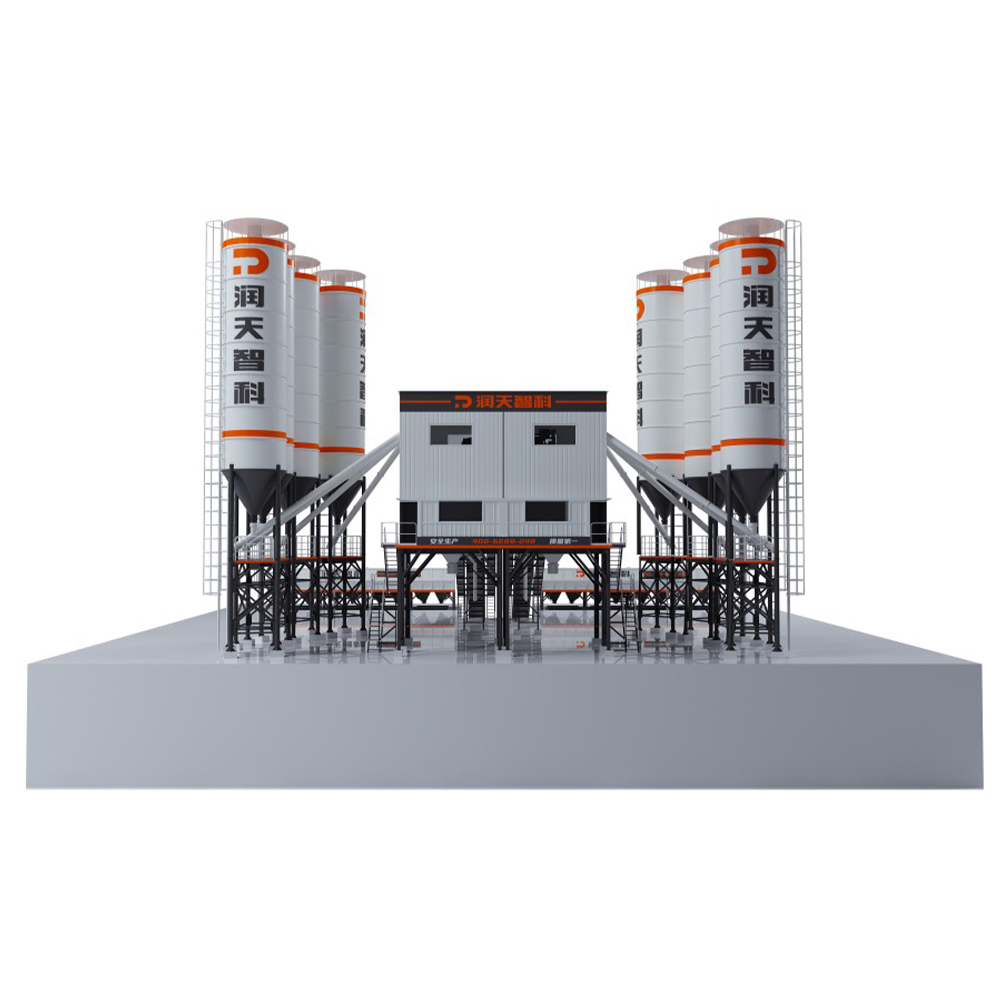 HZS Series Belt Concrete Mixing Plant
HZS Series Belt Concrete Mixing Plant
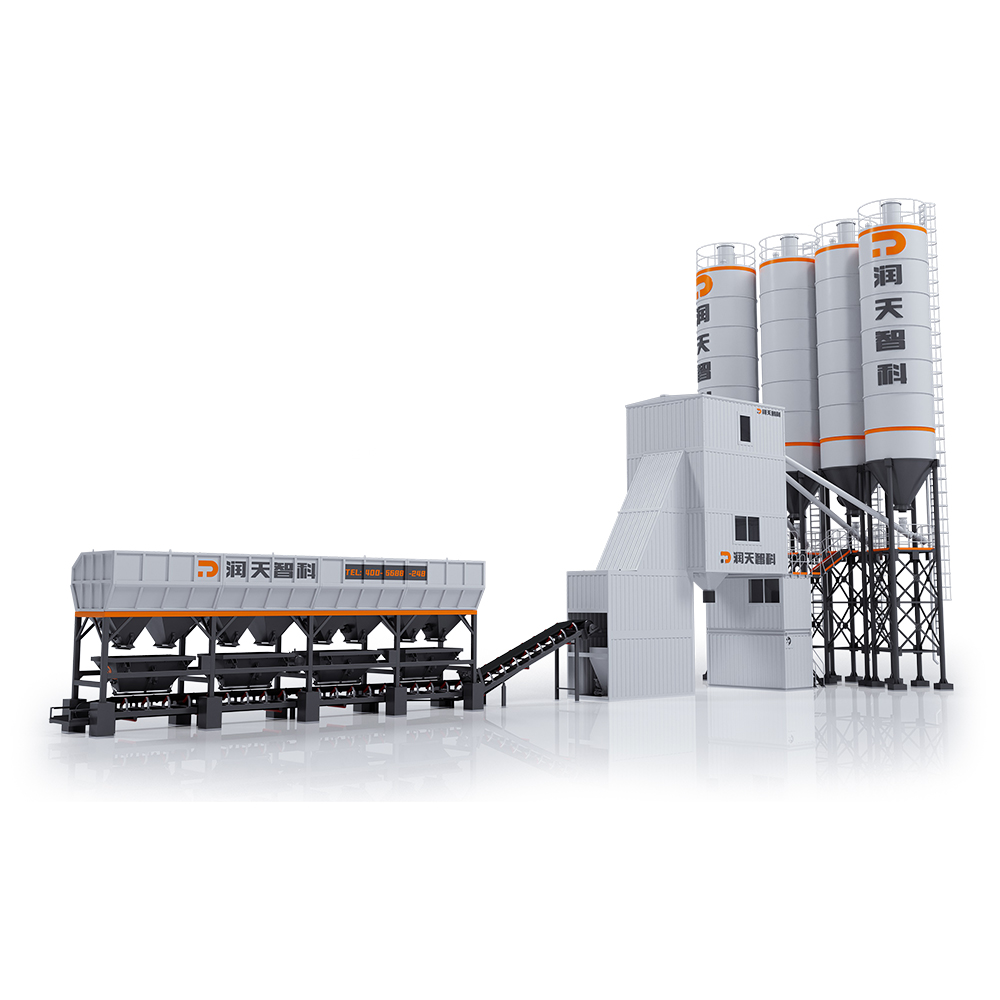 HZS Series Bucket-Lifting Type Container Concrete Mixing Plant
HZS Series Bucket-Lifting Type Container Concrete Mixing Plant
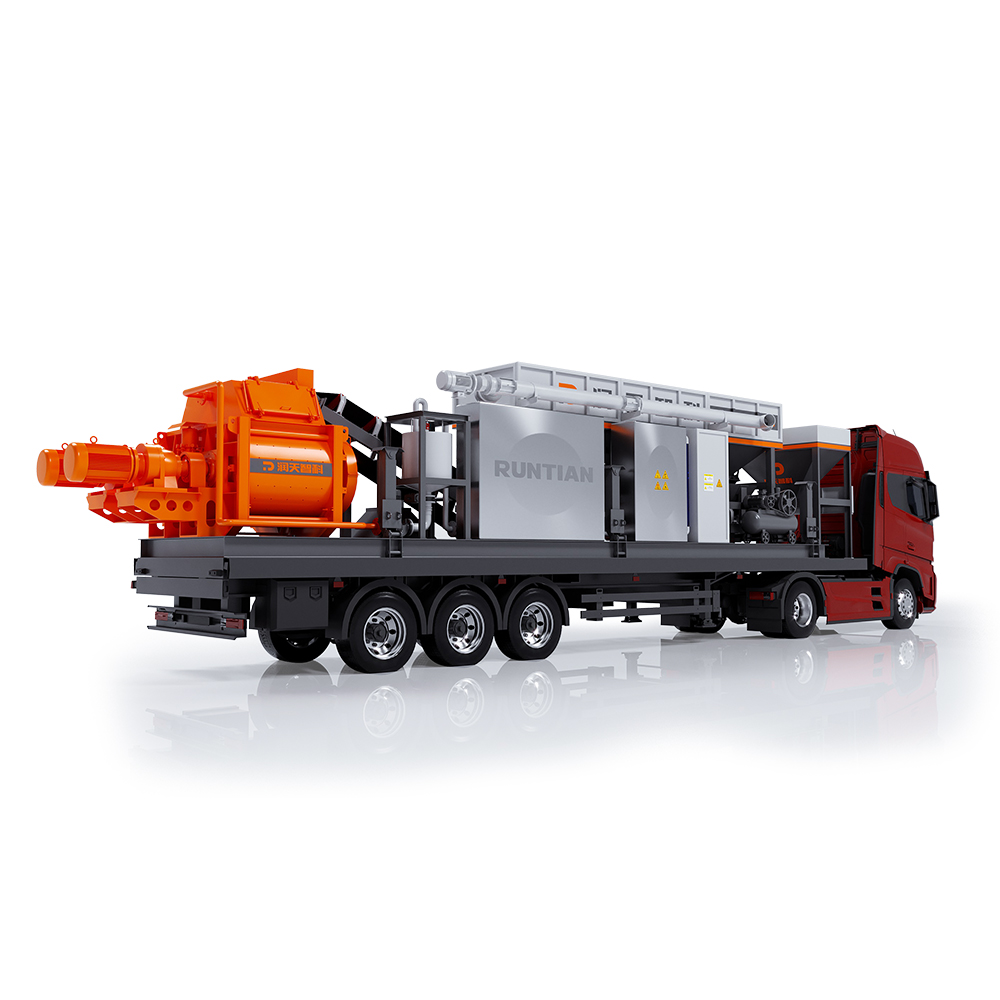 HZS60 Mobile Concrete Mixing Plant
HZS60 Mobile Concrete Mixing Plant
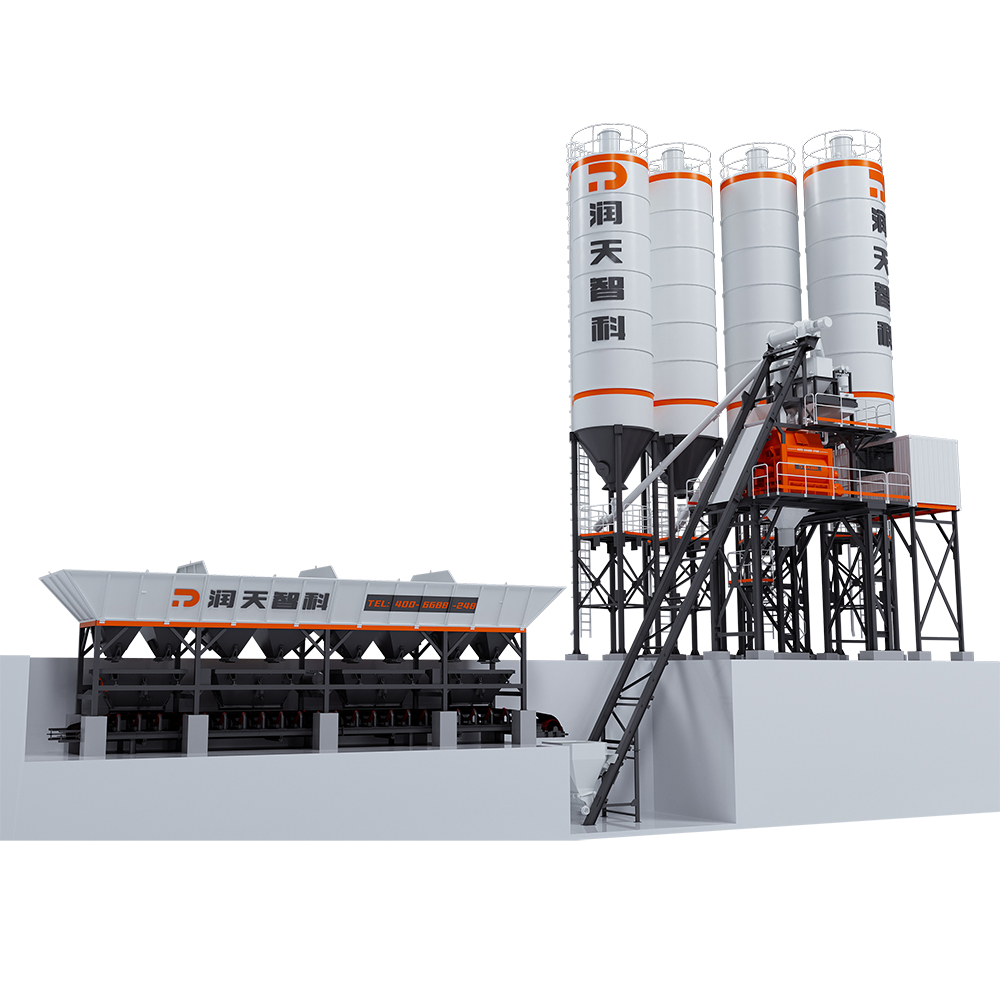 HZS Series Bucket-Lifting Type Concrete Mixing Plant
HZS Series Bucket-Lifting Type Concrete Mixing Plant
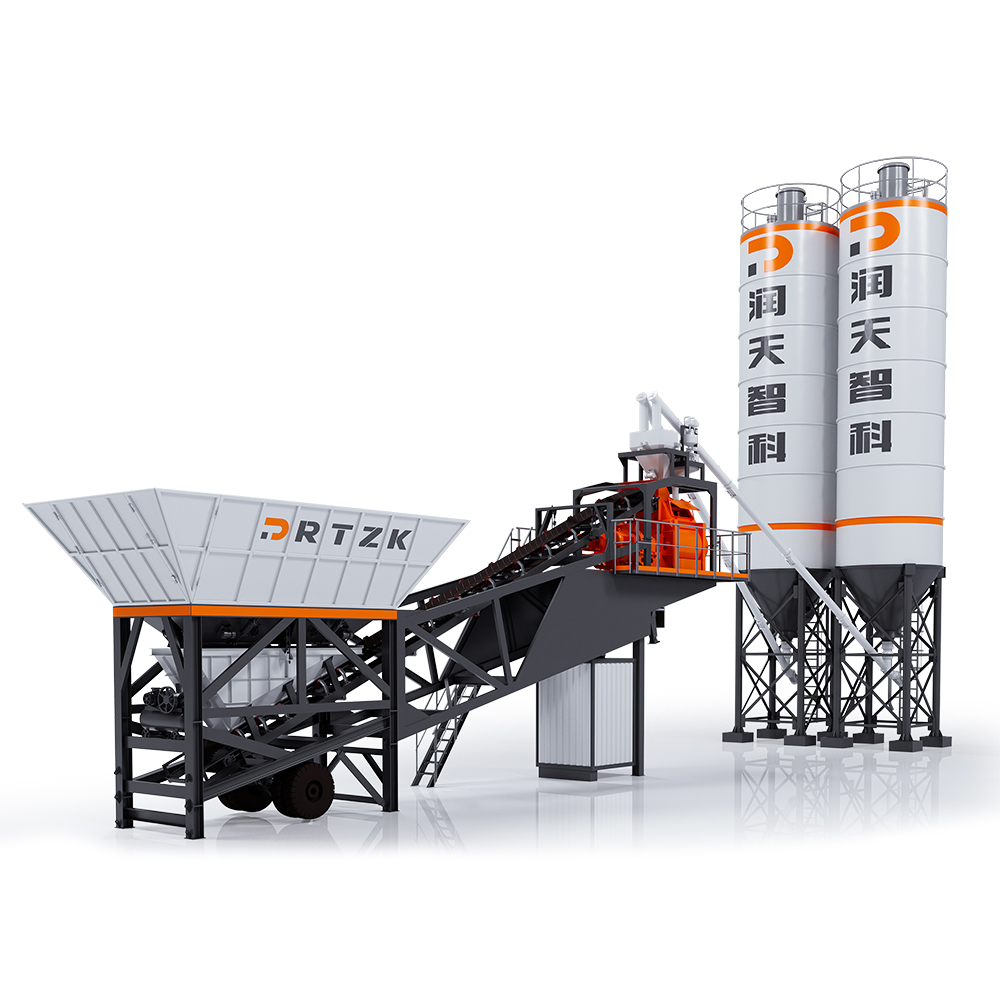 HZS Series Mobile Concrete Mixing Plant
HZS Series Mobile Concrete Mixing Plant
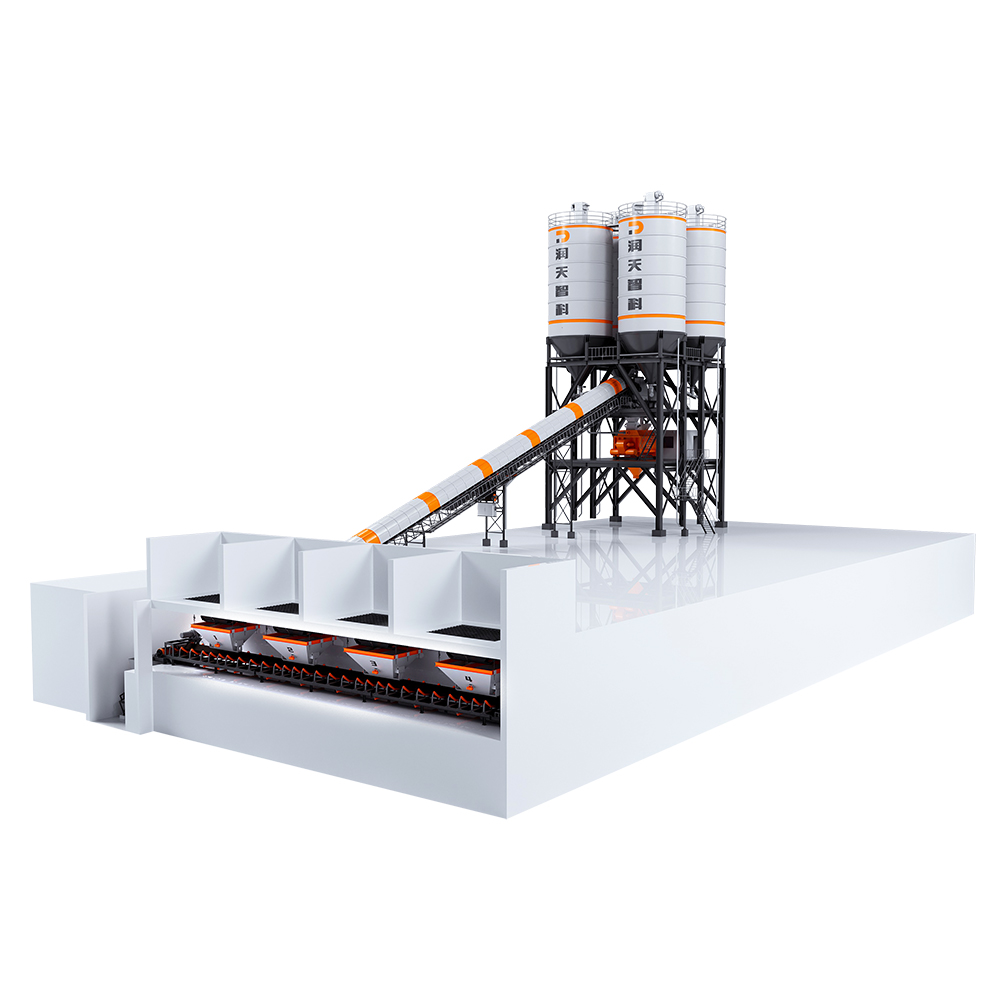 HZS Series Top-Mounted Concrete Mixing plant
HZS Series Top-Mounted Concrete Mixing plant
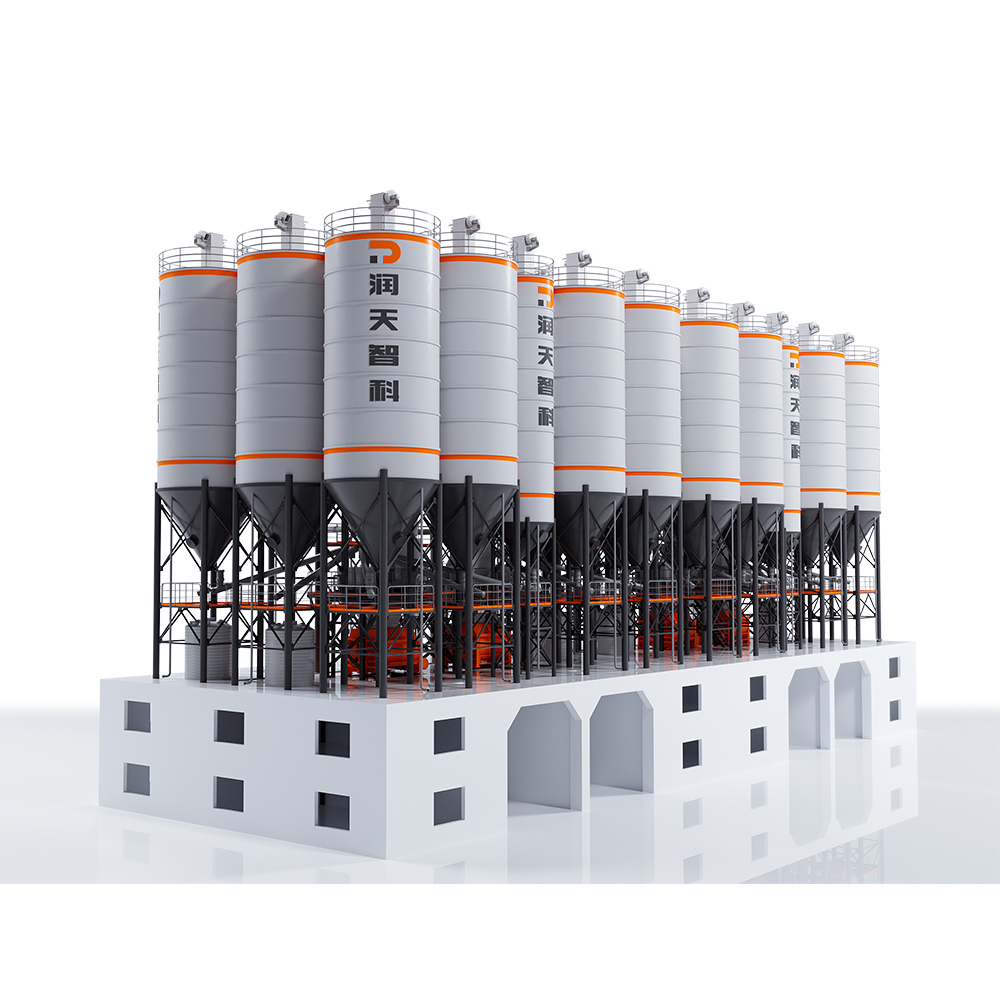 HZS Series Semi-Top Mounted Concrete Mixing Plant
HZS Series Semi-Top Mounted Concrete Mixing Plant
 Stabilized Soil Mixing Plant
Stabilized Soil Mixing Plant
 Asphalt Mixing Plant
Asphalt Mixing Plant
 Sand & Gravel Crushing and Screening Plant
Sand & Gravel Crushing and Screening Plant
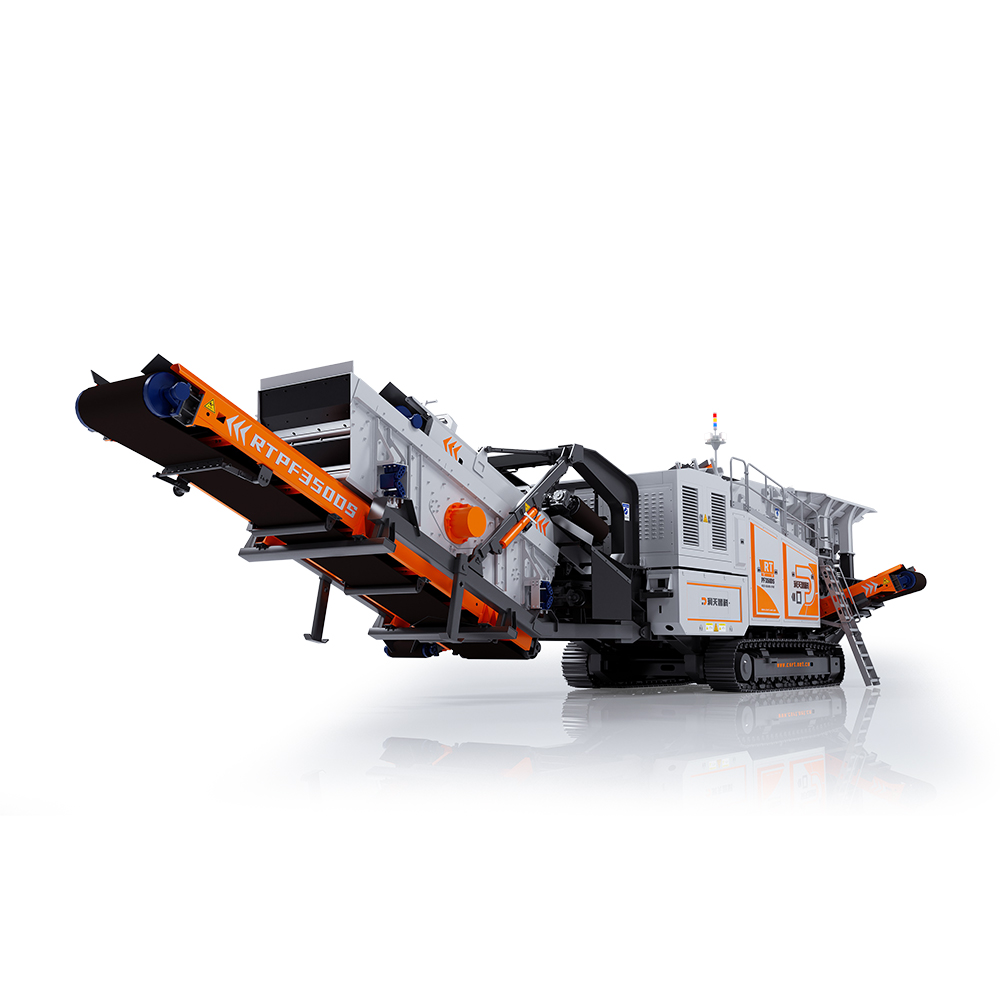 RTPF350DS Crawler Mobile Impact Crushing Plant
RTPF350DS Crawler Mobile Impact Crushing Plant
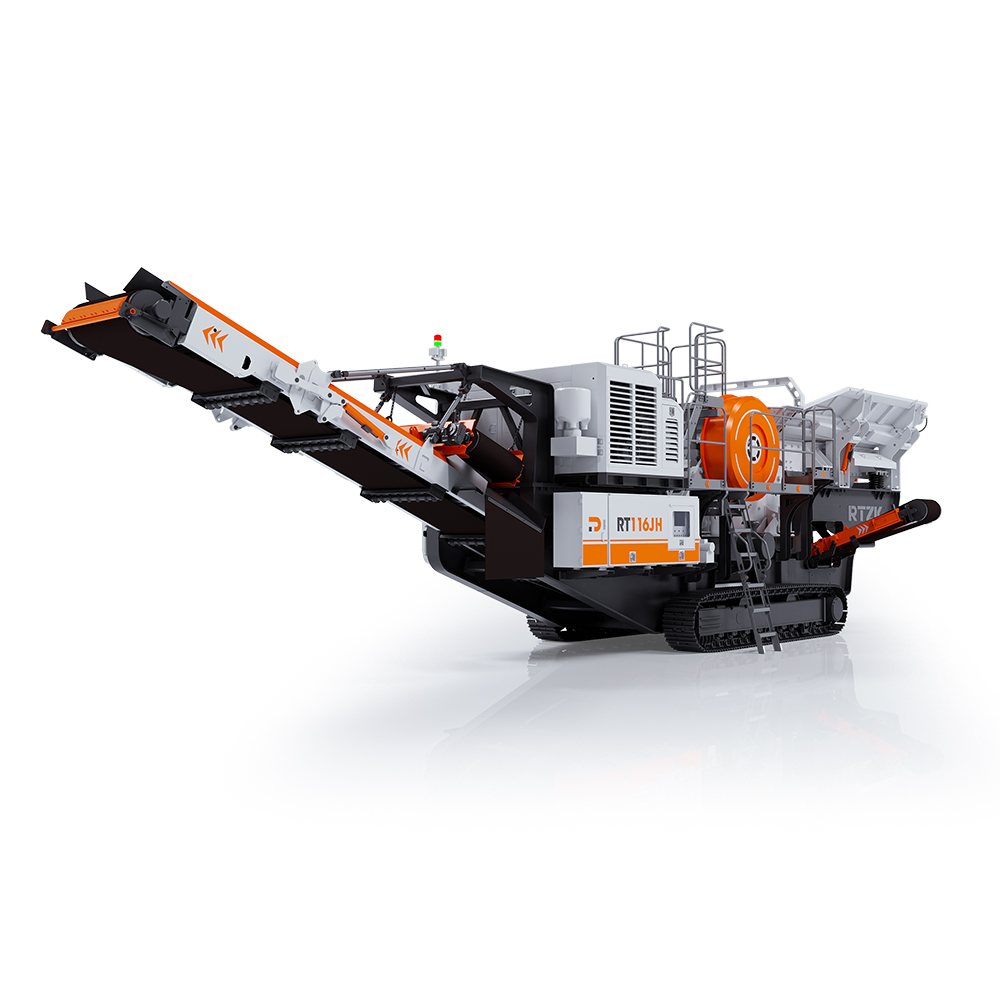 RT116JH Crawler Mobile Jaw Crushing Plant
RT116JH Crawler Mobile Jaw Crushing Plant
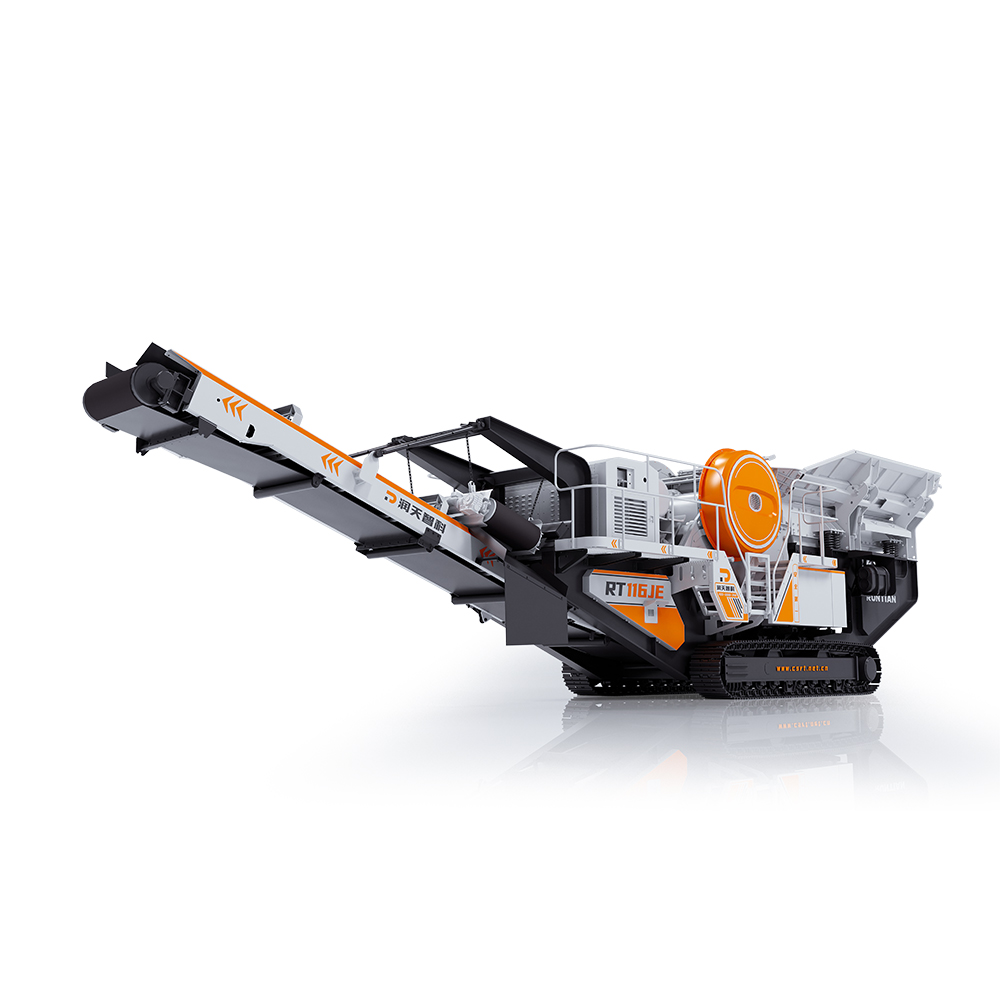 RT116JE Crawler Mobile Jaw Crushing Plant
RT116JE Crawler Mobile Jaw Crushing Plant
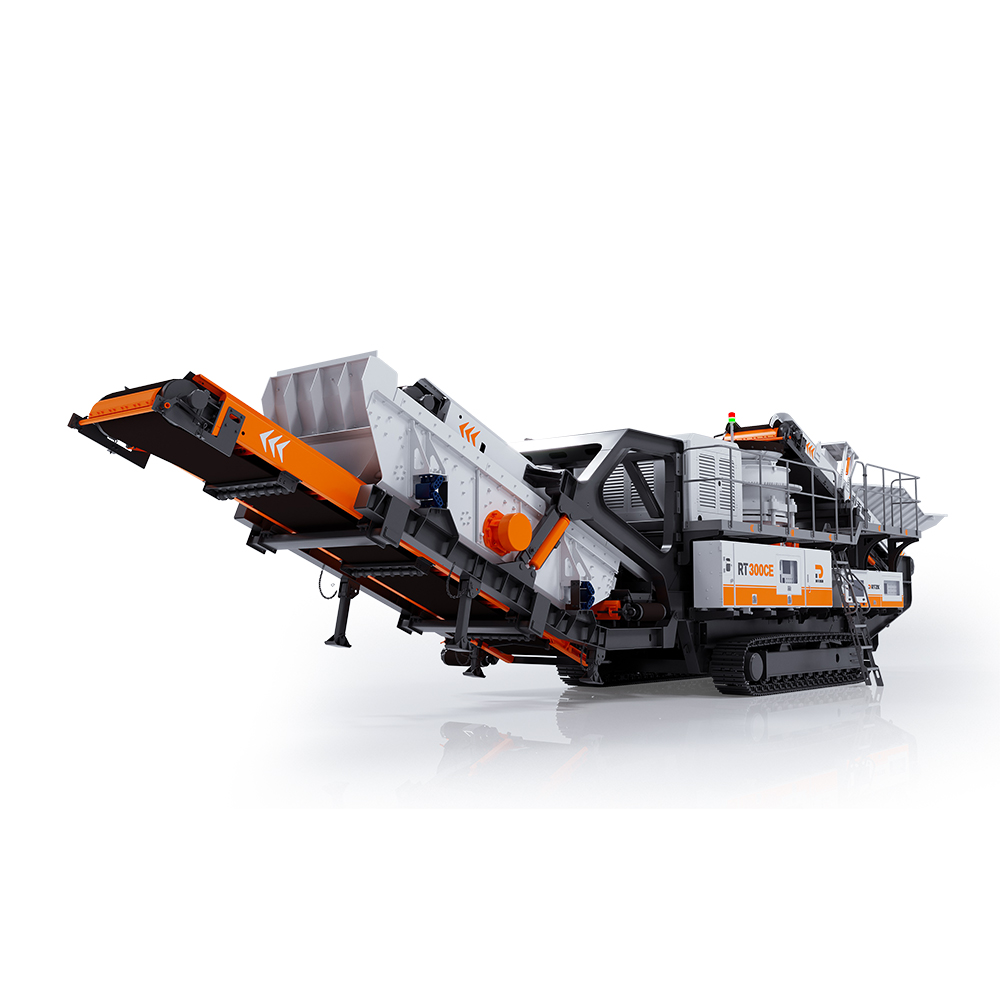 RT300CE Crawler Mobile Cone Crushing Plant
RT300CE Crawler Mobile Cone Crushing Plant
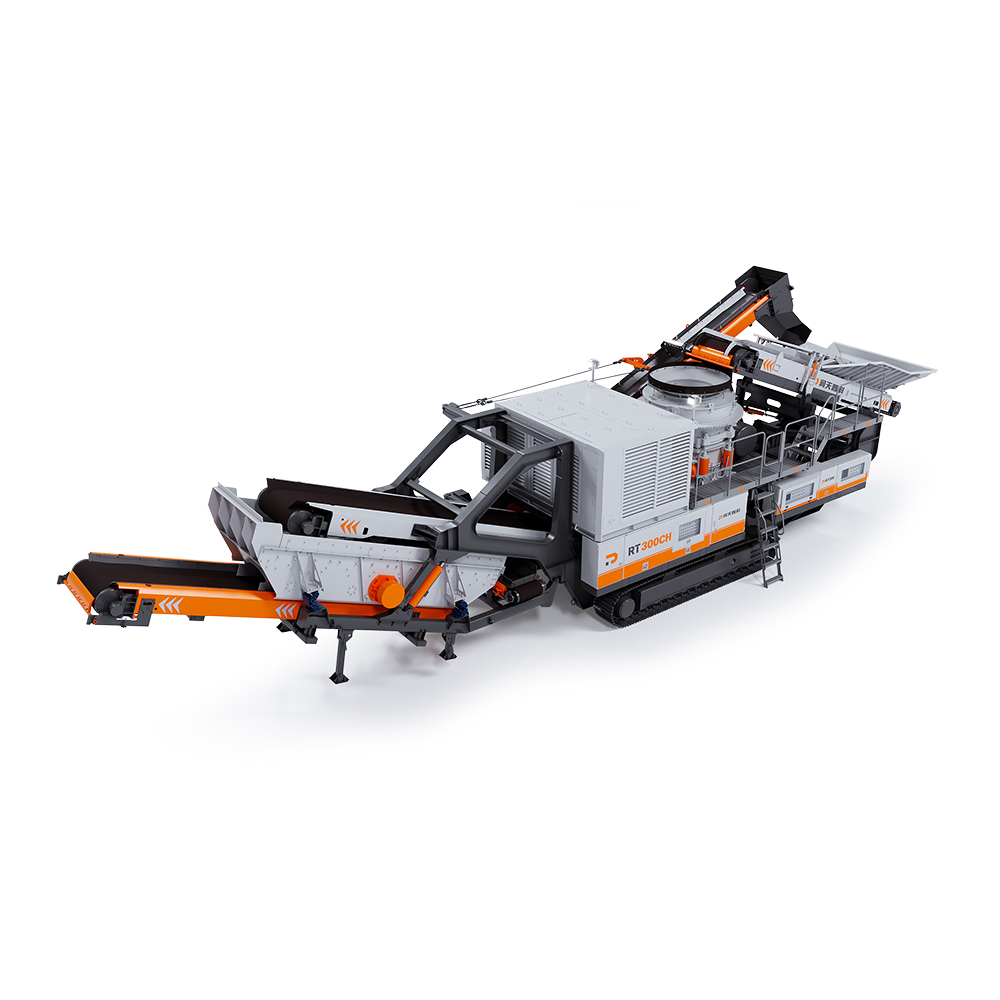 RT300CH Crawler Mobile Cone Crushing Plant
RT300CH Crawler Mobile Cone Crushing Plant
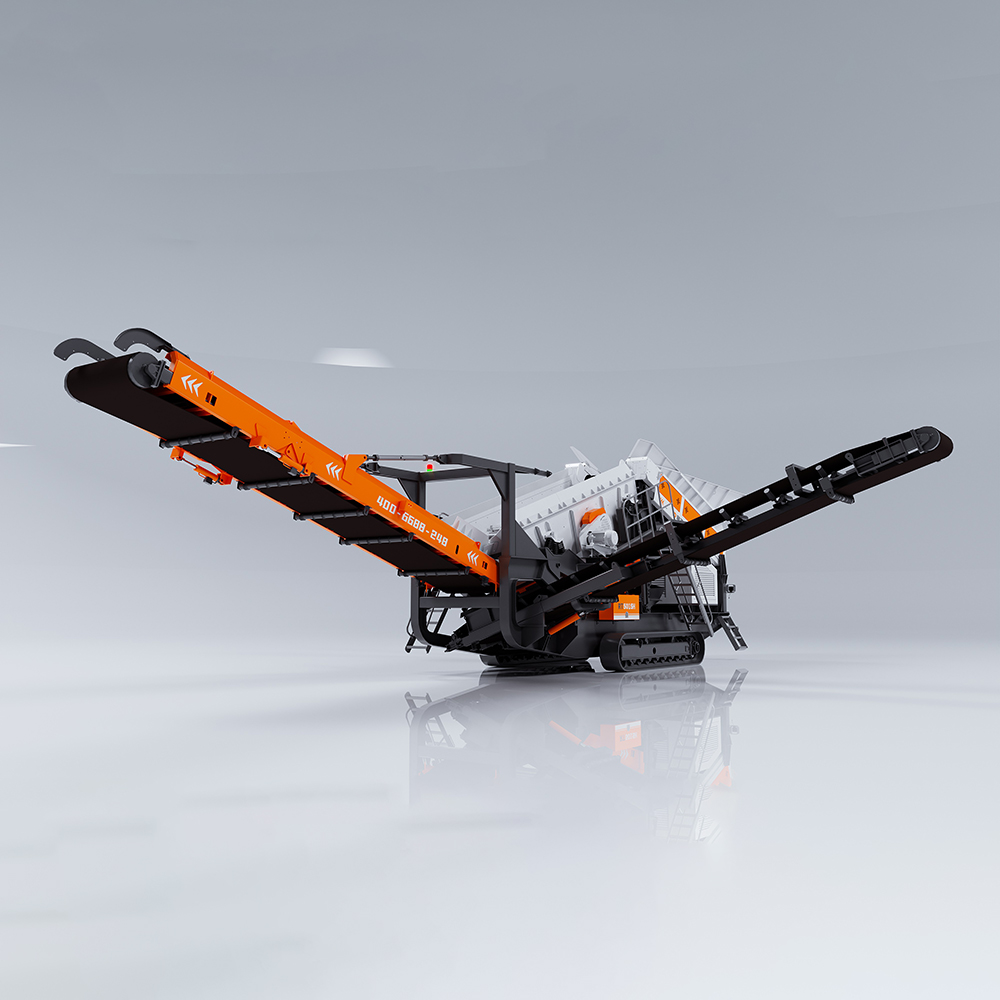 RT5015H Mobile Scalping Screen
RT5015H Mobile Scalping Screen
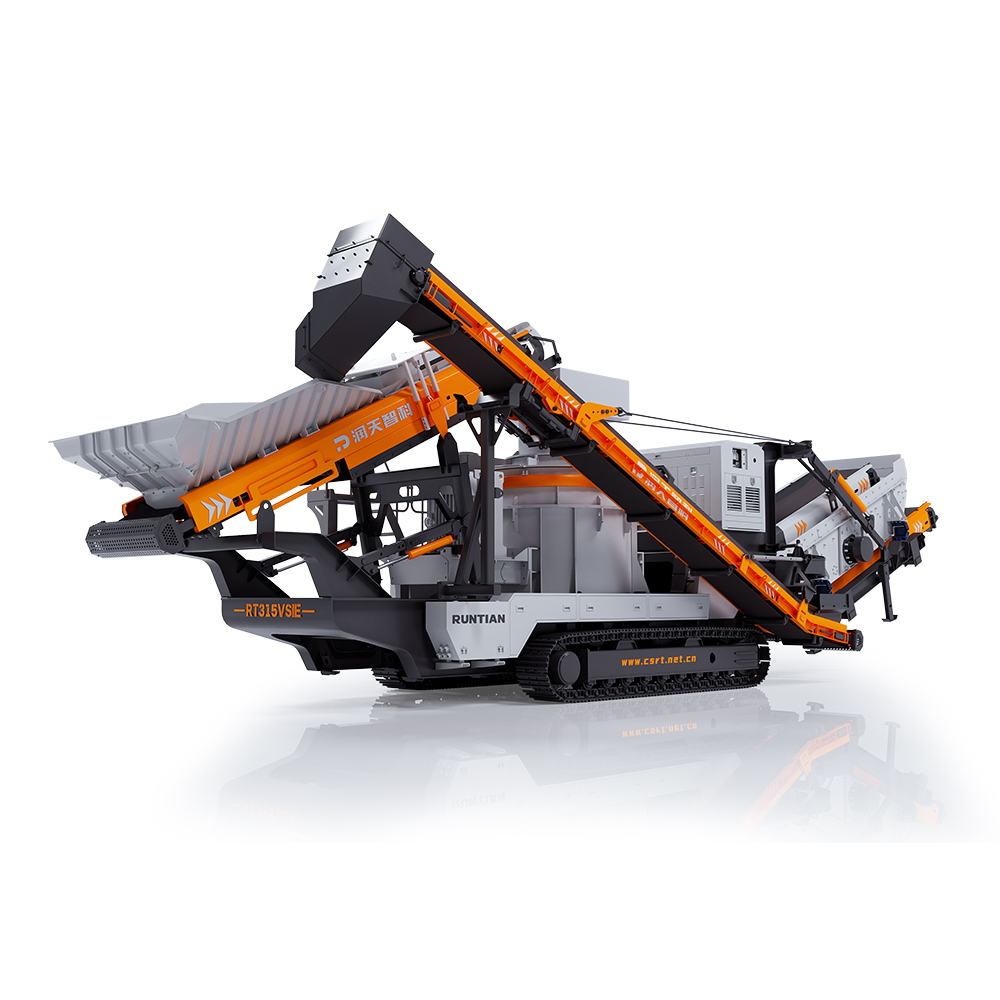 RT315VSIE Crawler Mobile Sand Maker
RT315VSIE Crawler Mobile Sand Maker
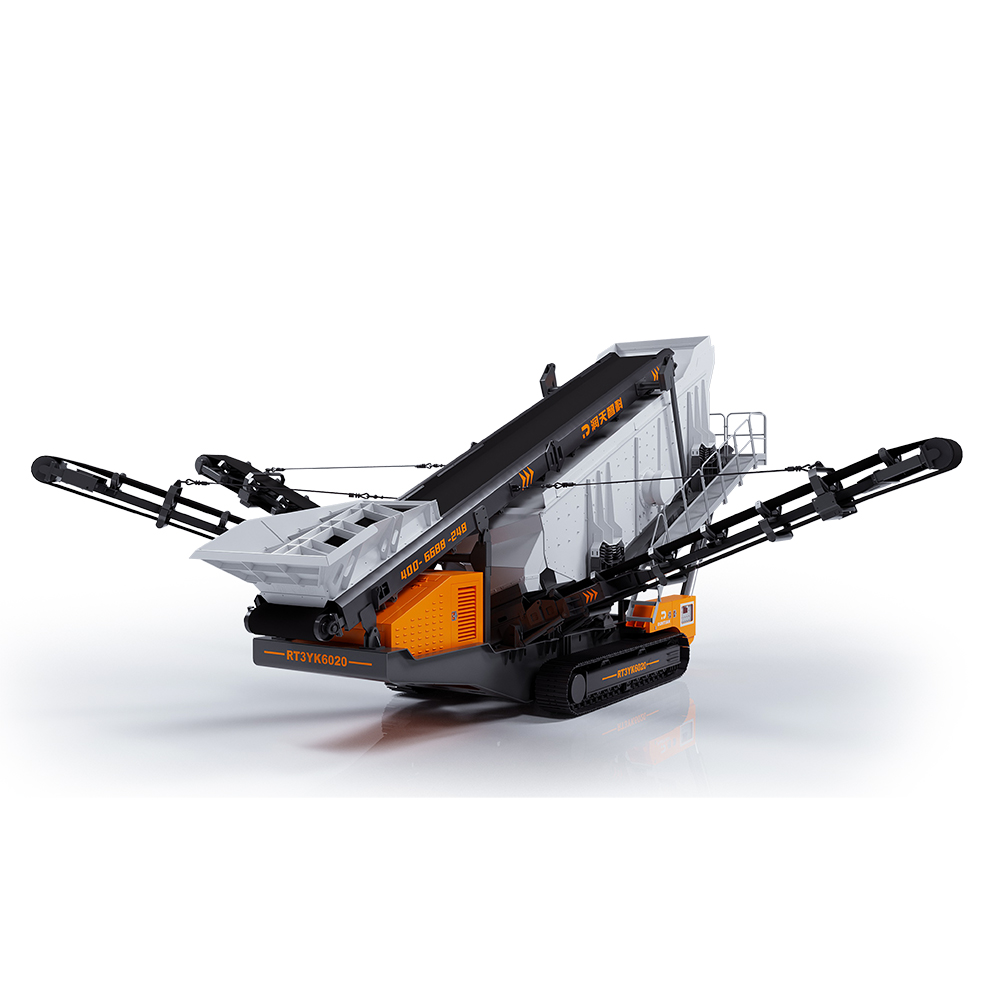 RT3YK6020 Crawler Mobile Screening Plant
RT3YK6020 Crawler Mobile Screening Plant
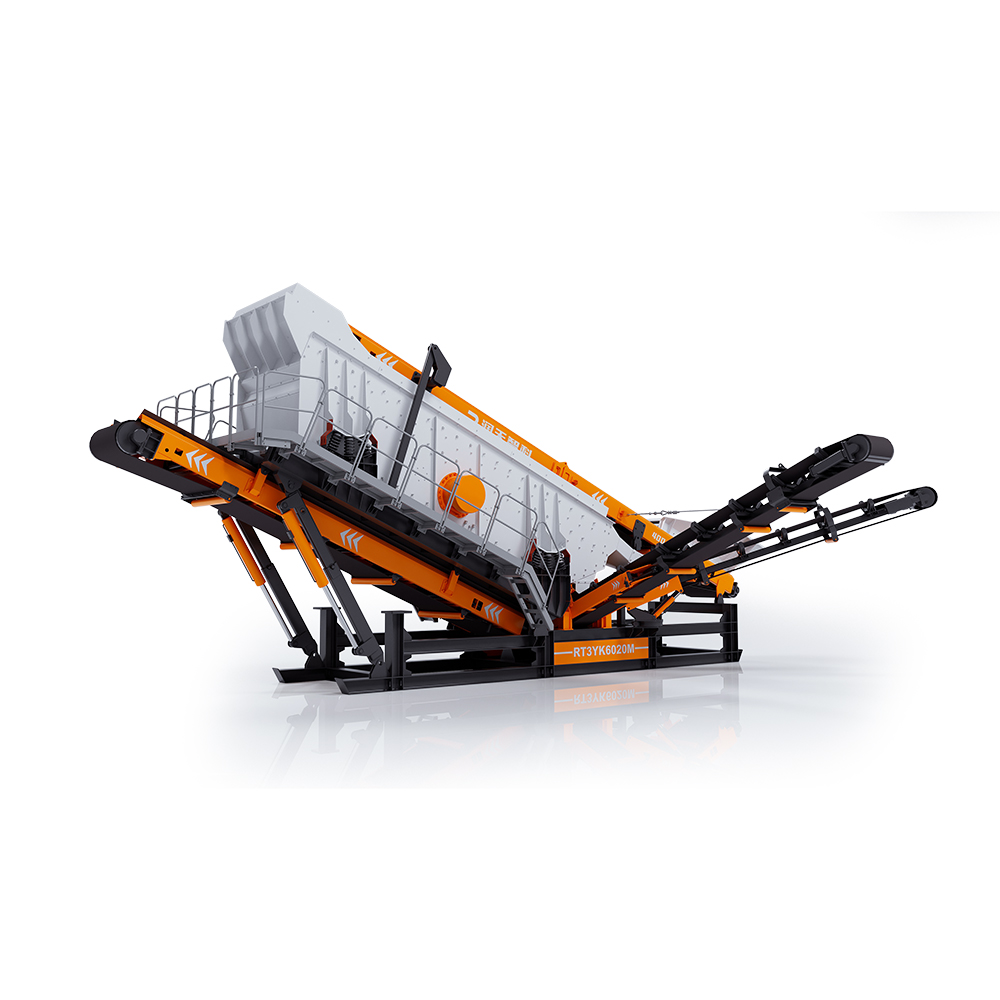 RT3YK6020M Modular Screening Plant
RT3YK6020M Modular Screening Plant
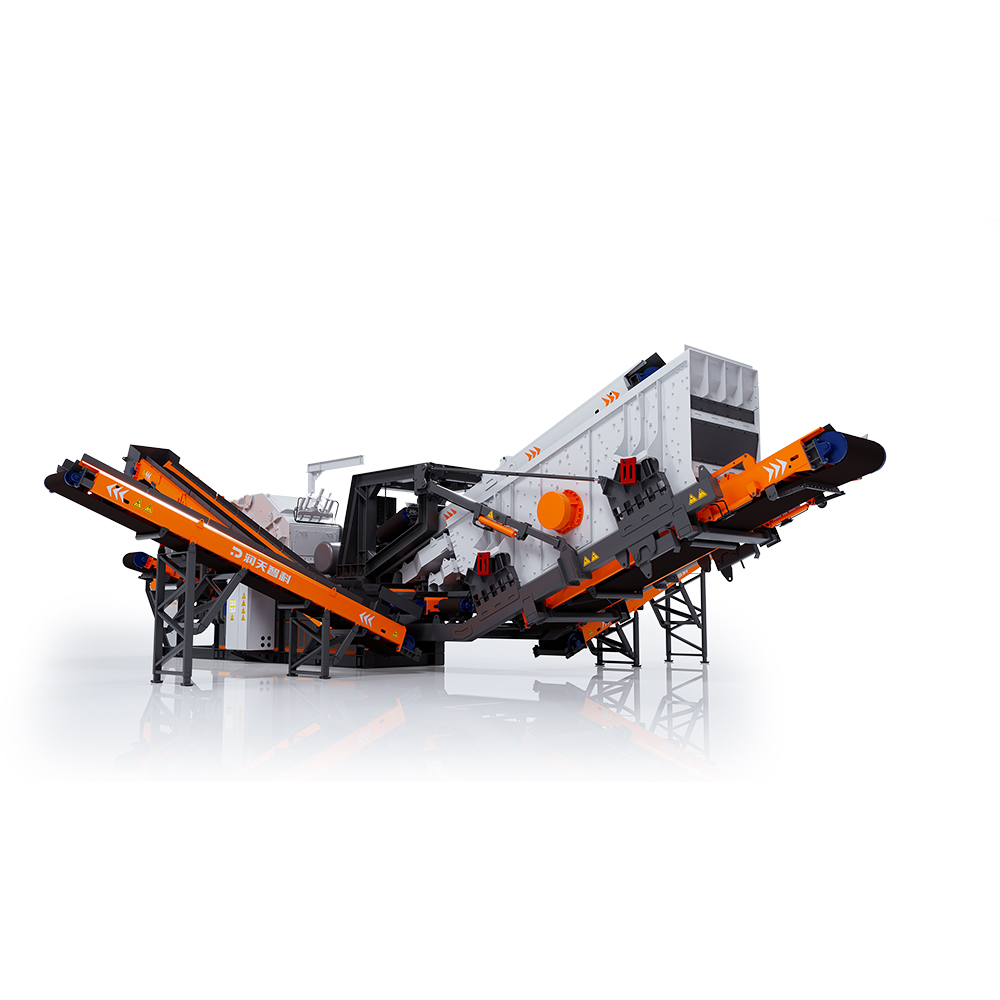 RTF260M Modular Counterattack Crushing and Screening Integrated Machine
RTF260M Modular Counterattack Crushing and Screening Integrated Machine
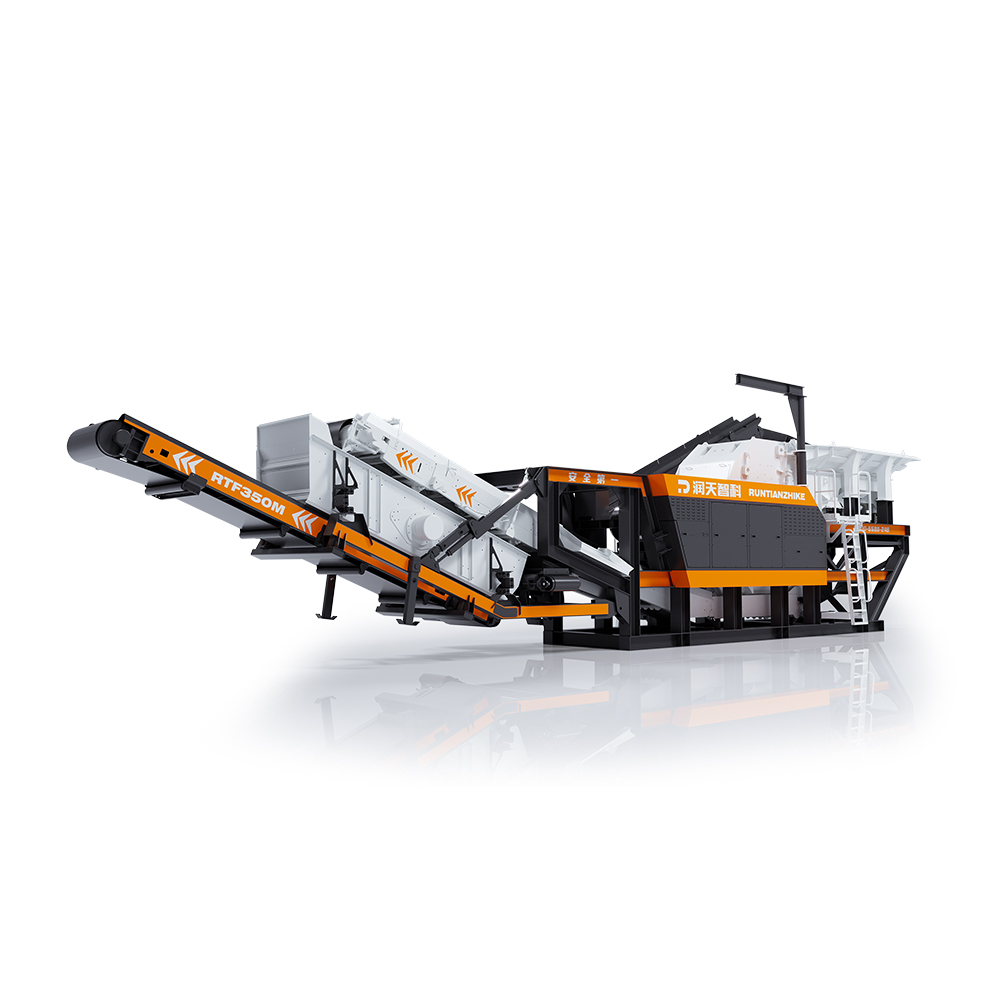 RTF350M Modular Impact Crushing Plant
RTF350M Modular Impact Crushing Plant
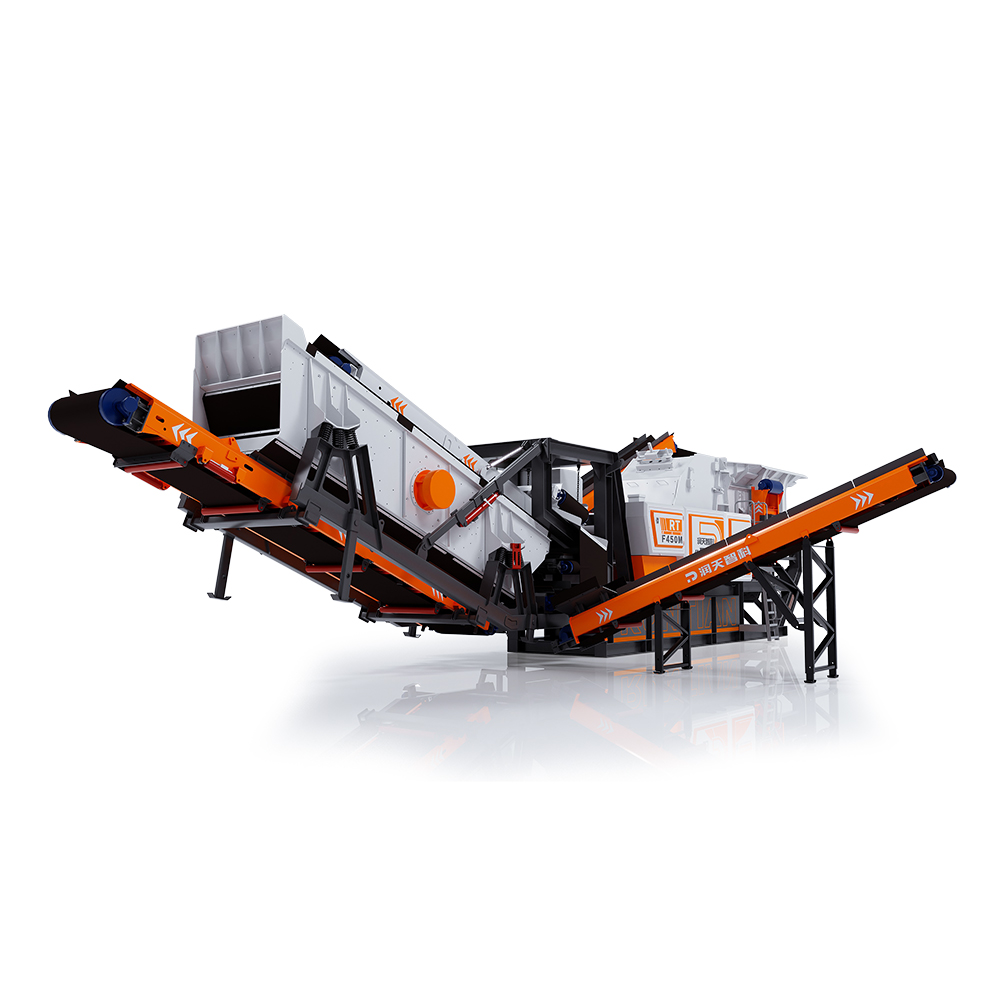 RTF450M Modular Impact Crushing Plant
RTF450M Modular Impact Crushing Plant
 Construction Waste Resourceful Treatment Line
Construction Waste Resourceful Treatment Line
Performances
Video
News
Blog
Contact Us
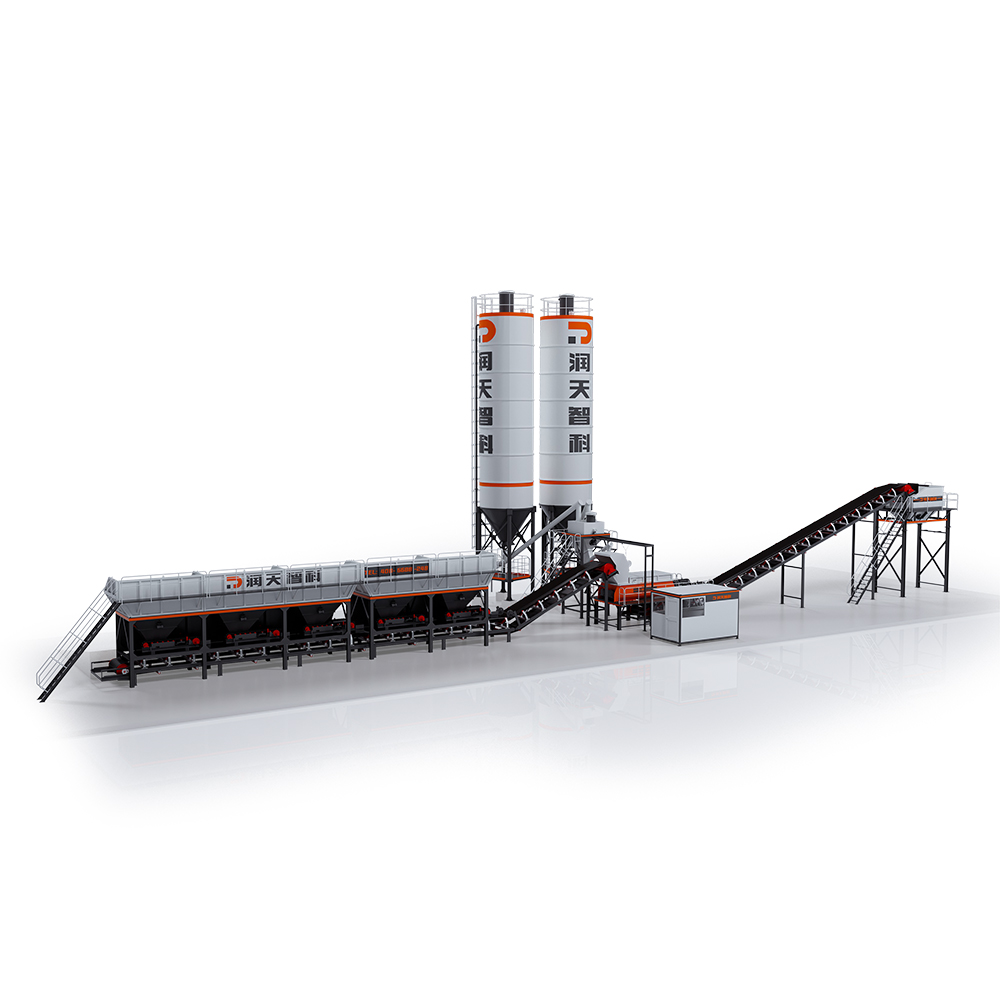 WDB Series Foundation-Free Stability Soil Mixing Plant
WDB Series Foundation-Free Stability Soil Mixing Plant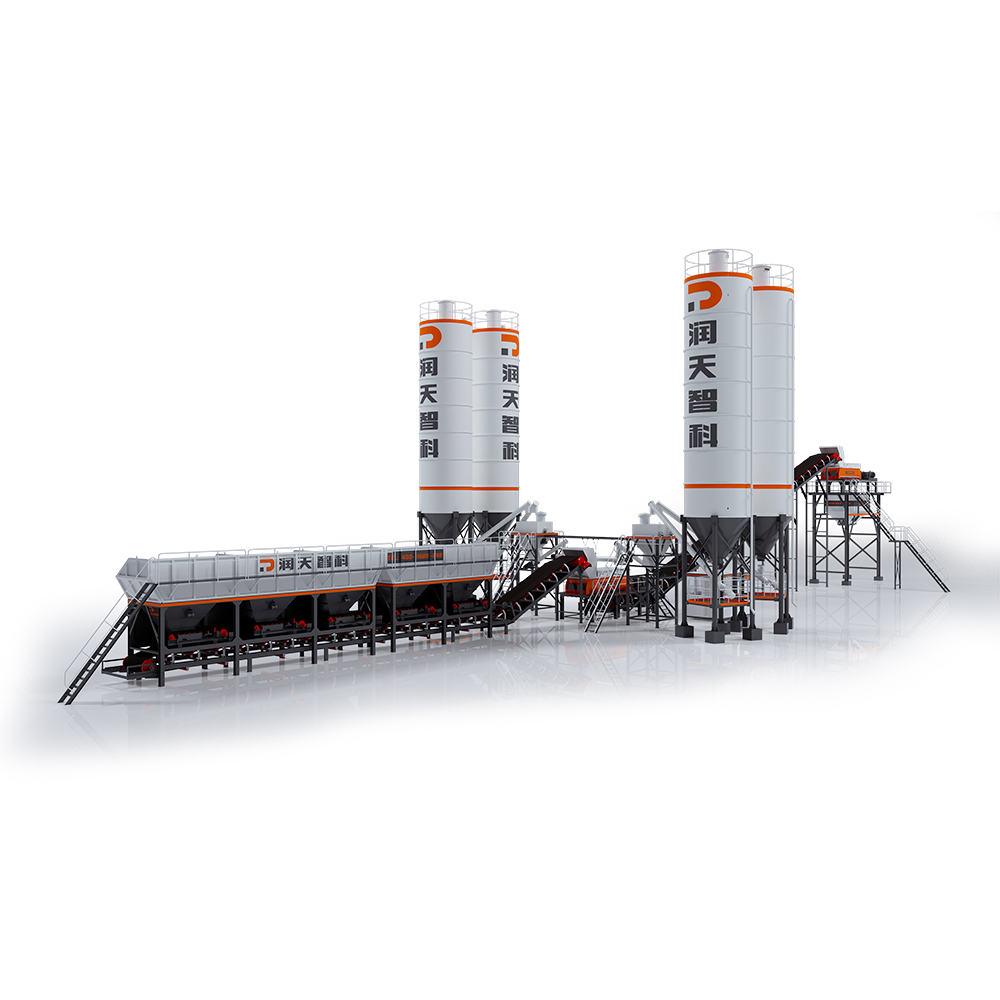 LCB Series Emulsified Asphalt Cold Regeneration Secondary Mixing Plant
LCB Series Emulsified Asphalt Cold Regeneration Secondary Mixing Plant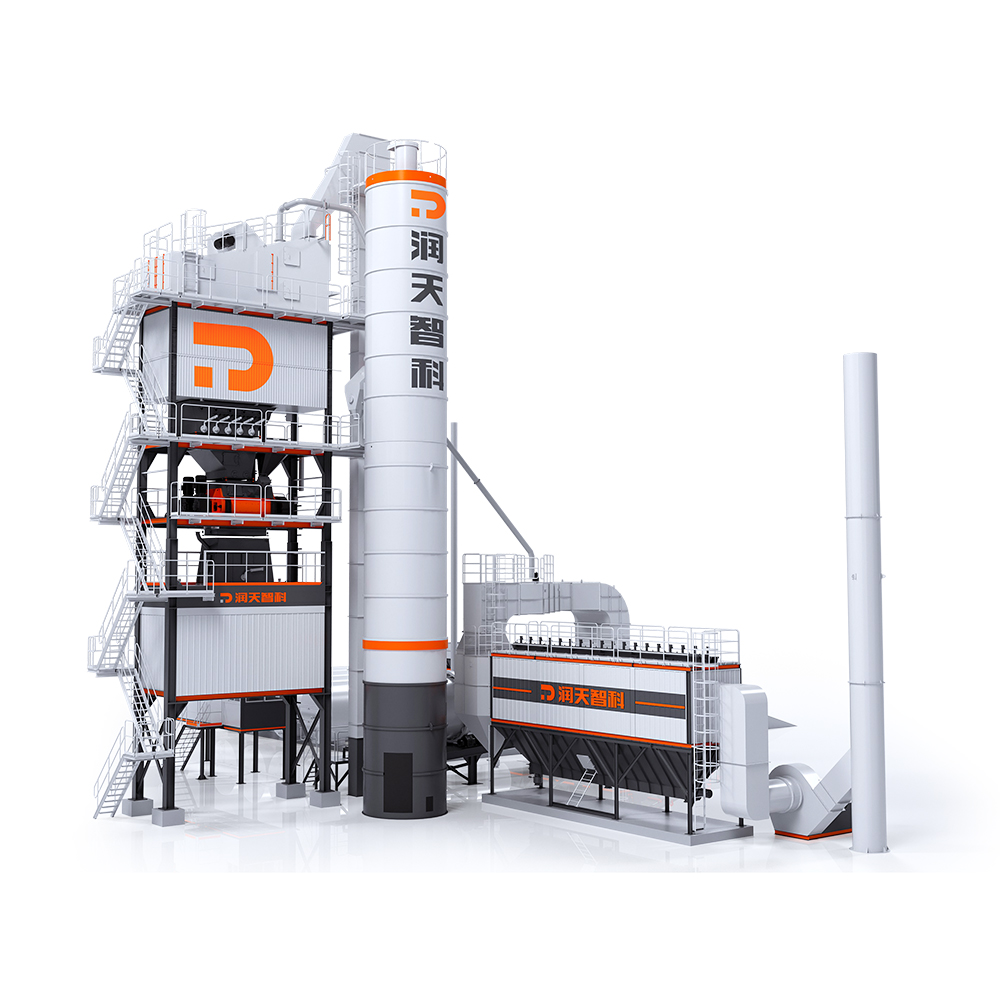 LB Series Asphalt Mixing Plant
LB Series Asphalt Mixing Plant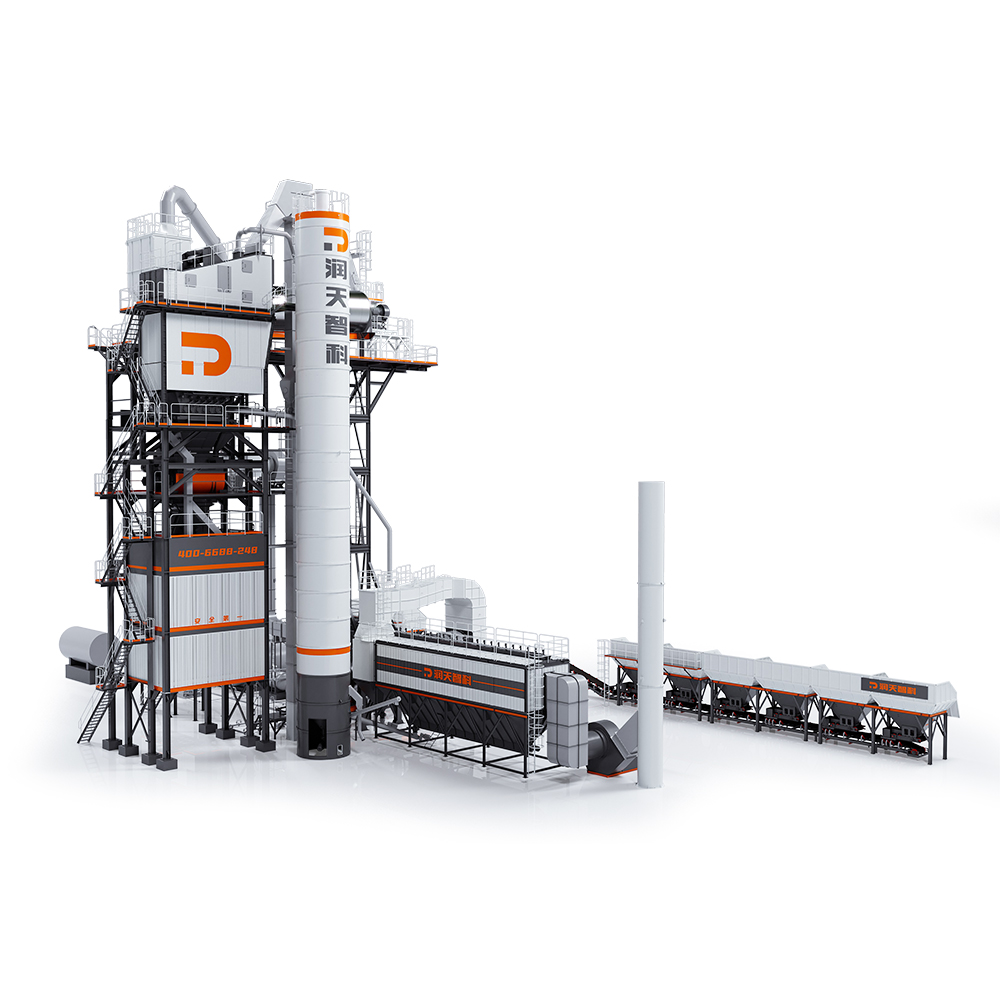 LBR Series Integrated Asphalt Mixing Plant
LBR Series Integrated Asphalt Mixing Plant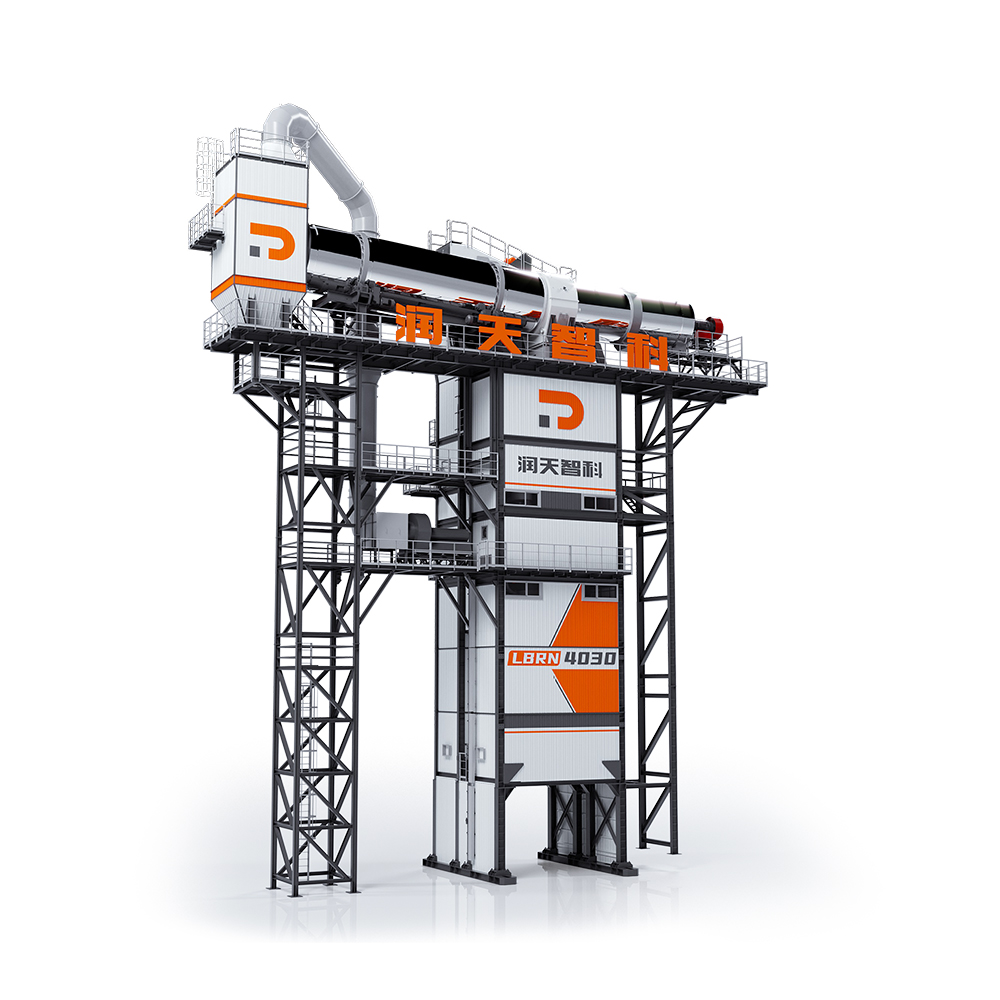 LBRN Series Counterflow Integral Asphalt Mixing Plant
LBRN Series Counterflow Integral Asphalt Mixing Plant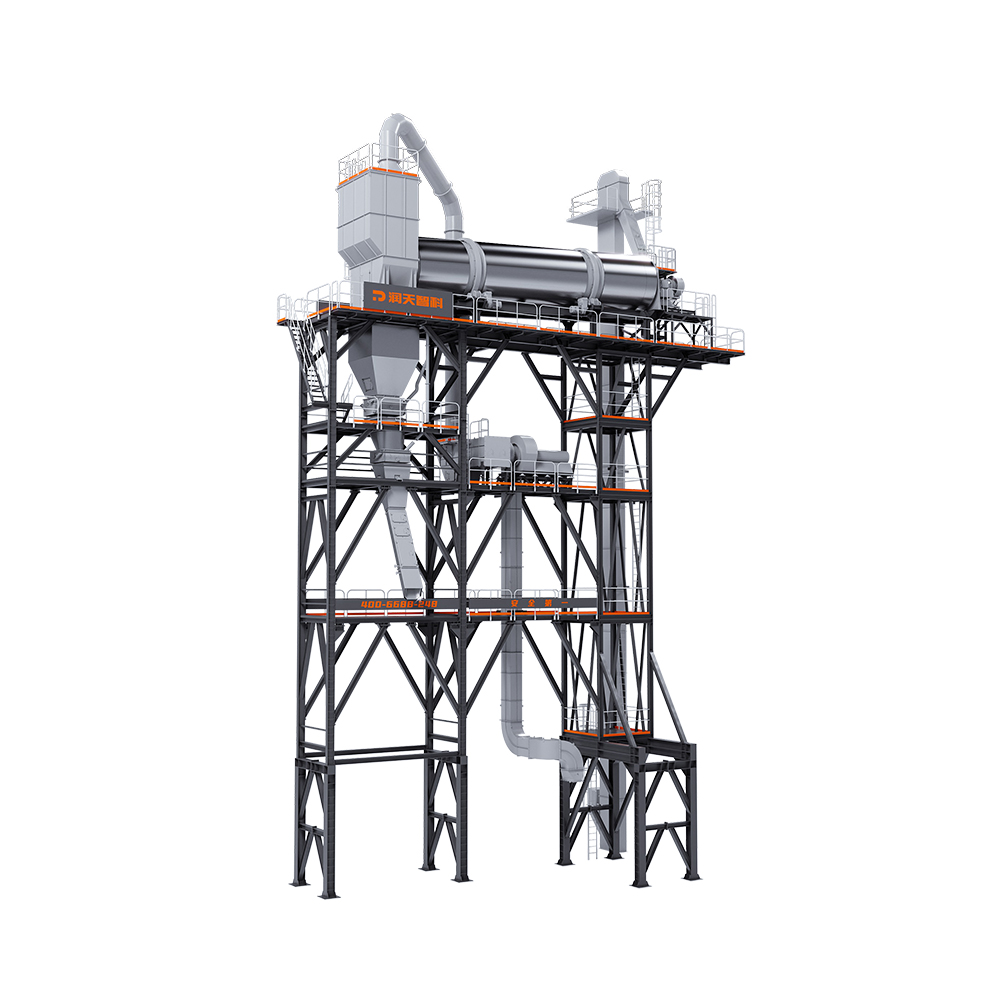 RZS Series Asphalt Mixing Plant
RZS Series Asphalt Mixing Plant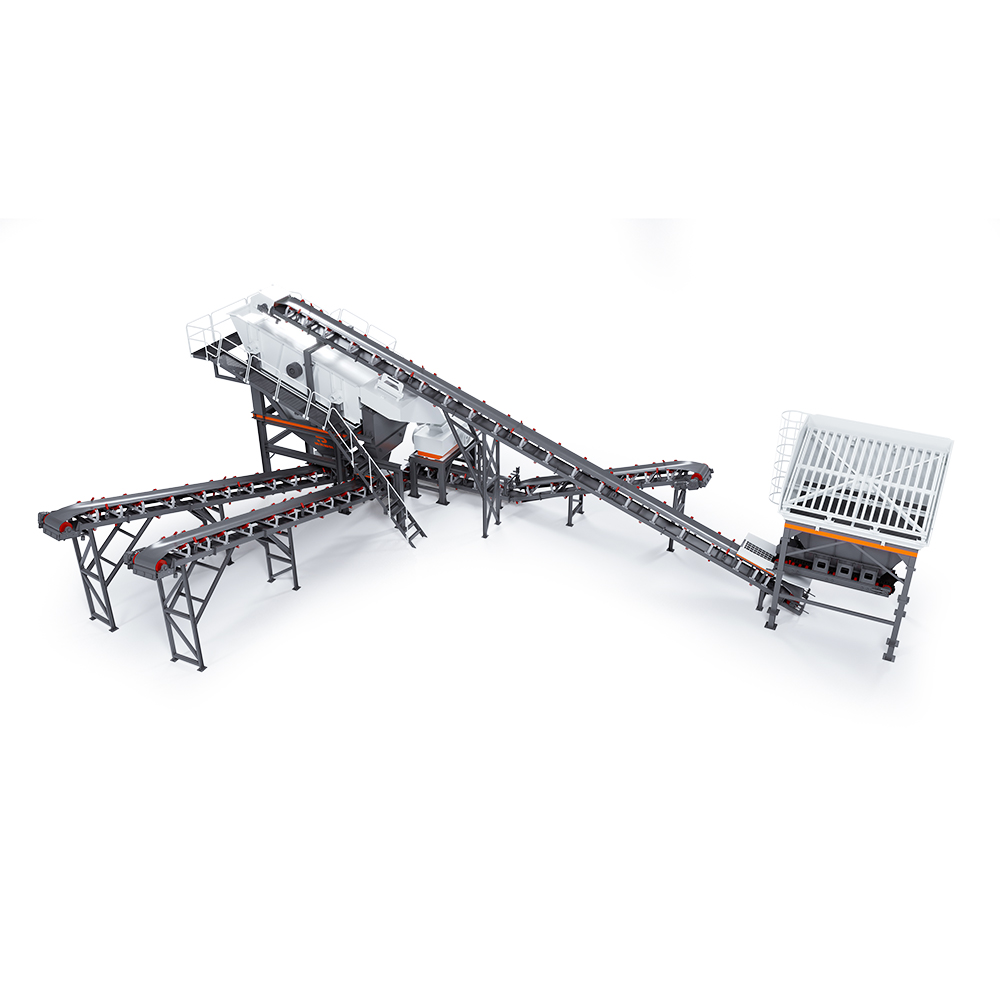 RTZS120 Series RAP Crushing & Screening Plant
RTZS120 Series RAP Crushing & Screening Plant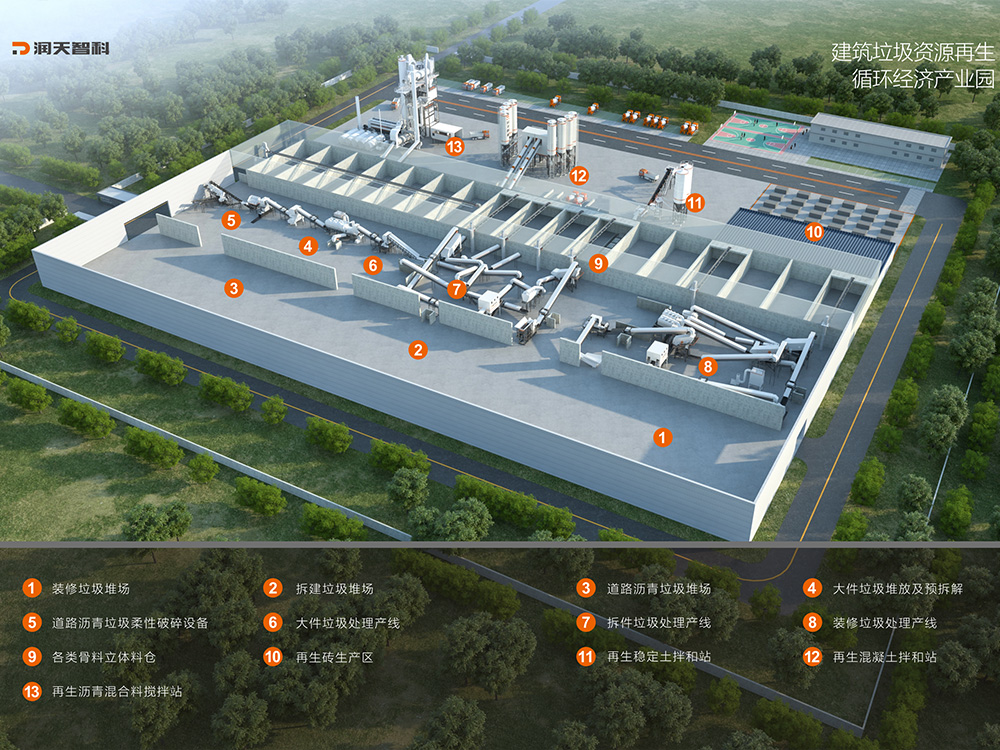 Construction Waste Resourceful Treatment Line
Construction Waste Resourceful Treatment Line




